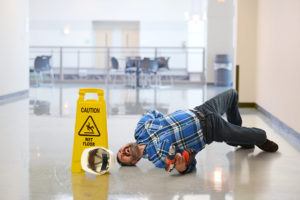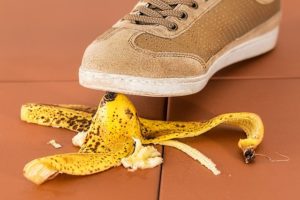 When dealing with a premises liability case in New Jersey, there are certain elements a plaintiff must prove in order to have a successful case. These elements are:
When dealing with a premises liability case in New Jersey, there are certain elements a plaintiff must prove in order to have a successful case. These elements are:
- The defendant’s duty to provide care
- That the defendant had breached the duty
- The defendant knew the property was dangerous
- Because of the defendant’s negligence, an accident occurred
- The damages involved in the accident
Knowledge of Danger and The Mode of Operation Doctrine
Out of the five factors above, the hardest to prove is knowledge of the danger. Not only does the defendant know of the danger, but the defendant must have had ample time to fix the situation prior to the accident. For example, you are visiting a friend in his apartment complex during a snowstorm.
The snow had just stopped falling when you left the complex and the landlord was coming out to clean the walkway. Before the landlord has a chance to clean up the snow, you slip and fall. Because the complex landlord did not have enough time to clean the snow following the storm, it can be difficult to file a claim against it.
However, there is an exception to the notice requirement in New Jersey and it’s called the mode of operation doctrine. The rule states that when the commercial property owner had created a dangerous condition, then the plaintiff does not need to prove the owner had ample time to notice the situation. So how does this relate to your premises liability case? Let’s break it down.
Mode of Operation Rule: An Example
Store X is currently under renovation. Although work is being done to the roof, the store owners decide to remain open. Since it is plain to see there is construction going on, the store owners decide that signs are not necessary. Tina has come to the store for her weekly grocery shopping trip. As she begins shopping, it begins to rain outside. Since the roof is still in need of repair, water begins dripping from the ceiling, causing puddles to form on the slippery linoleum. Tina doesn’t notice the puddle and slips. She falls hard, breaks her leg, and cracks a few ribs.
Although this is an overly dramatic situation to explain how a premises liability claim can be proved with the mode of operation in New Jersey. Yes, the employees did have time to clean the puddle of water and probably did not have knowledge of the leak. However, the owner was aware of the condition the store was in. And since the owner not only failed to inform shoppers of the conditions of the store, the owner is negligent under the mode of operation doctrine.
Again, the actions of the store do not have to be so drastic. Just having an accident at a self-service salad bar can be considered under the mode of operation rule.
 Do You Have a Slip and Fall Case in New Jersey?
Do You Have a Slip and Fall Case in New Jersey?
As you can see, premises liability cases can be quite complex. This is why it’s important to get an experienced slip and fall attorney to help you with your claim. If you were injured on a Jersey City commercial property and the cause was negligence from the property owner, let us help. Contact the Jersey City premises liability firm Law Offices of Anthony Carbone today for a free consultation at 201-829-3829.


